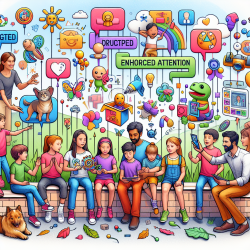Introduction
In the evolving landscape of healthcare, the intersection of law and ethics presents unique challenges, particularly in areas as sensitive as Medical Assistance in Dying (MAiD). The research article titled But it’s legal, isn’t it? Law and ethics in nursing practice related to medical assistance in dying by Schiller et al. (2019) provides a comprehensive analysis of these challenges. This blog aims to distill key insights from the article, encouraging practitioners to enhance their skills and knowledge by considering the implications of MAiD in their practice.
Understanding the Legal Framework
The legalization of MAiD in Canada marked a significant shift in healthcare, allowing nurse practitioners to act as assessors and providers. This legal framework, while facilitating accountability and accessibility, also demands a nuanced understanding of the ethical landscape. Practitioners must navigate the delicate balance between legal compliance and ethical considerations, ensuring that patient autonomy is respected while maintaining professional integrity.
Ethical Implications for Nursing Practice
One of the central themes of the research is the conflation of legal and moral considerations in the context of MAiD. Nurses and nurse practitioners are often at the forefront of implementing MAiD, and they must be equipped to address the moral complexities that arise. The article emphasizes the importance of creating morally sustainable work environments where nurses can engage in MAiD without compromising their ethical standards.
Practical Steps for Practitioners
To improve their skills and navigate the complexities of MAiD, practitioners can take the following steps:
- Continuous Education: Engage in ongoing education and training to stay informed about the latest legal and ethical guidelines related to MAiD.
- Reflective Practice: Regularly reflect on personal values and ethical beliefs to better understand how they align with professional responsibilities.
- Collaborative Dialogue: Foster open communication with colleagues and legal experts to discuss and resolve ethical dilemmas.
- Policy Engagement: Participate in policy discussions and development to advocate for ethical practices in MAiD implementation.
Encouraging Further Research
While the article provides valuable insights, it also highlights the need for further research in this area. Practitioners are encouraged to explore the following research avenues:
- Investigate the impact of MAiD on nurse well-being and moral distress.
- Examine the role of cultural and religious beliefs in shaping ethical perspectives on MAiD.
- Analyze the effectiveness of current training programs in preparing nurses for MAiD-related ethical challenges.
Conclusion
The integration of legal and ethical considerations in nursing practice, particularly in the context of MAiD, is crucial for delivering compassionate and ethical care. By implementing the insights from Schiller et al.'s research, practitioners can enhance their skills and contribute to the development of ethically sound healthcare environments.
To read the original research paper, please follow this link: But it’s legal, isn’t it? Law and ethics in nursing practice related to medical assistance in dying.










